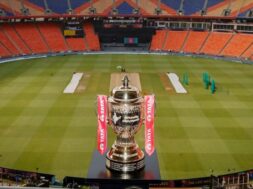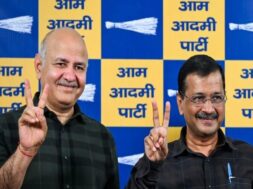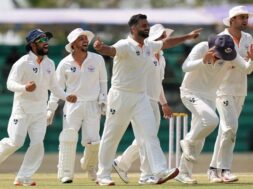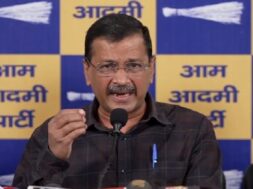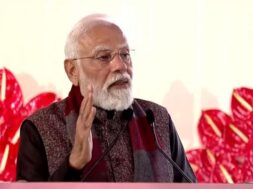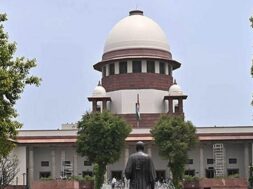
Virendra Pandit
New Delhi: In a landmark victory for the Tata Group, the Supreme Court on Friday set aside the National Company Law Appellate Tribunal (NCLAT) order that had reinstated Cyrus Mistry on Tata Sons’ Board and termed its current Chairman N. Chandrasekaran’s appointment as illegal.
Ruling in favor of Tata Sons, the apex court also rejected Mistry’s plea against the conversion of Tata Sons into a private company.
The Supreme Court Bench, led by Chief Justice of India S.A. Bobde, also refused to entertain Mistry’s plea for fair compensation for their 18.5 percent stake in Tata Sons, saying its value will depend on the valuation of Tata Sons’ assets and that it would not get into determining what should be a fair value.
Lawyers said both parties can now begin talks on how Mistry can sell its stake to the Tatas or their nominated investors, and at what valuation.
During the hearing in the SC, the Mistrys had pegged their stake’s valuation at Rs 1.76 trillion, while the Tatas said it was far below, at Rs 80,000 crore.
The apex court’s ruling led to a rally in the Tata Group companies on the bourses. With its listed companies’ shares going up significantly in the stock markets, the valuation of Mistry’s stake has also gone up.
The verdict will have an impact not only on Tata Sons but also on other companies planning to go private. It will allow them to convert into private companies. The Mistry family had objected to Tata Sons going private which, it maintained, reduced liquidity in Tata Sons’ shares.
Reacting to the development, Ratan Tata, Chairman Emeritus of Tata Group, said, “I appreciate and am grateful for the judgment passed by the honorable Supreme Court today. It is not an issue of winning or losing. After relentless attacks on my integrity and the ethical conduct of the group, the judgment upholding all the appeal of Tata Sons is a validation of the values and ethics that have always been the guiding principles of the group. It reinforces the fairness and justice displayed by our judiciary.”
Tata Trusts, which owns a 66 percent stake in Tata Sons, is chaired by Ratan Tata, the patriarch of the Tata group, while the Mistry family owns an 18.4 percent stake in the company, but the holding is less than 3 percent if preferential shares are excluded.
Just a few weeks before the SC hearing started, the Mistrys offered to sell the stake in lieu of stakes in the listed Tata companies, including Tata Consultancy Services, Tata Motors, and Tata Steel, and calculated their stake in Tata Sons at Rs 1.76 trillion, including its brand value.
The Tatas did not respond to the offer then but rejected it in the SC saying Mistry had damaged the Tata brand.
The case
A bitter battle in legal and public arenas had erupted between the two sides when Cyrus Mistry was removed from Tata Sons’ Board of Directors as Chairman in 2016. Mistry’s main complaint was that he was being blamed for the poor performance of Tata Group’s companies during his tenure since 2012, which led to his removal. But this shoddy performance was actually due to the ‘bad apples’ acquired by his predecessor, Ratan Tata, during his 20-year term at the helm of Tata Sons.
Soon, in his communications to Tata Sons’ directors and Tata Trusts’ trustees, Mistry cited the sad financial state of affairs of Tata Steel Europe, Tata Motors’ loss-making Nano project, Tata Teleservices, Indian Hotels, Jaguar Land Rover, and Tata Power’s Mundra power projects, which, he said, had drained Tata Sons’ coffers.
Calling these as “legacy hotspots” which pulled down the Group’s performance, Mistry said it was Ratan Tata, and not him, who should take the blame. He also raised corporate governance issues including Tata Capital’s loans to Ratan’s close friend, C Sivasankaran (which were never repaid), and bribery by Air Asia India to get its flying license. Mistry said that since he had raised these issues, he was made the fall guy.
In September 2017, Tata Sons decided to turn into a private company, thus making it difficult for the Mistrys to sell their shares to any outsider or even raise funds by giving Tata Sons shares as collateral. As the Mistry Group’s financial situation became precarious, it had no other option but to raise funds by pledging Tata Sons shares. However, it was nixed by the Tata Sons by moving the SC.
The legal battle
Cyrus Mistry had taken over as Chairperson of Tata Sons in December 2012 and was removed from the post by a majority of the Board of Directors of the company on October 24, 2016. In February 2017, an EGM of shareholders voted for the removal of Mistry from the Board as well and N. Chandrasekaran took over as Executive Chairman of Tata Sons.
Mistry challenged these decisions in a court, alleging oppression and mismanagement in Tata Sons. In July 2018, the Mumbai Bench of the National Company Law Tribunal (NCLT) dismissed Mistry’s petition and held that the Board of Directors is competent to remove the Chairman and that no selection committee is required to remove the Executive Chairman.
It also ruled that Tata Sons cannot be prevented from becoming a private company and found no merit in the arguments relating to mismanagement in Tata Group companies. However, in December 2019, the National Company Law Appellate Tribunal (NCLAT) allowed Mistry’s appeal and overturned the NCLT judgment. It held as illegal the removal of Mistry as Tata Sons’ Chairman by the Board in October 2016 and quashed Chandrasekaran’s appointment in place of Mistry.
In January 2020, Tata Sons and Ratan Tata challenged the NCLAT rulings in the Supreme Court which stayed the NCLAT judgment. In February 2020, Mistry filed a cross-appeal against the NCLAT judgment, maintaining that it failed to grant certain crucial reliefs to the Mistry firms.
In September 2020, the apex court restrained Mistry’s Shapoorji Pallonji Group (SP Group) from pledging any of its shares in Tata Sons for raising funds. In December 2020, the final hearing in the high-profile case commenced before the three-judge Supreme Court bench headed by CJI S.A. Bobde. On December 17, 2020, the court reserved judgment.

